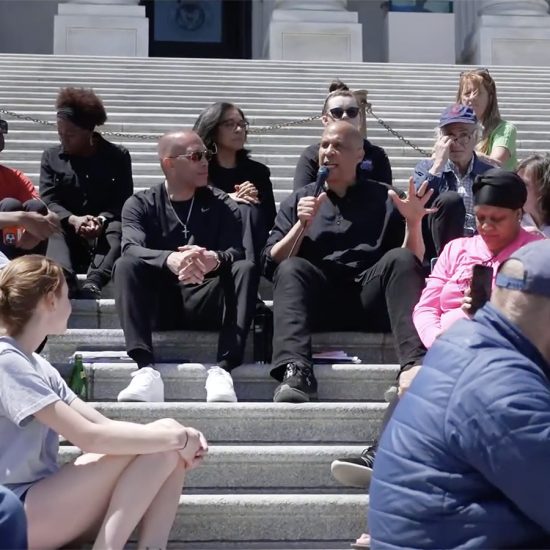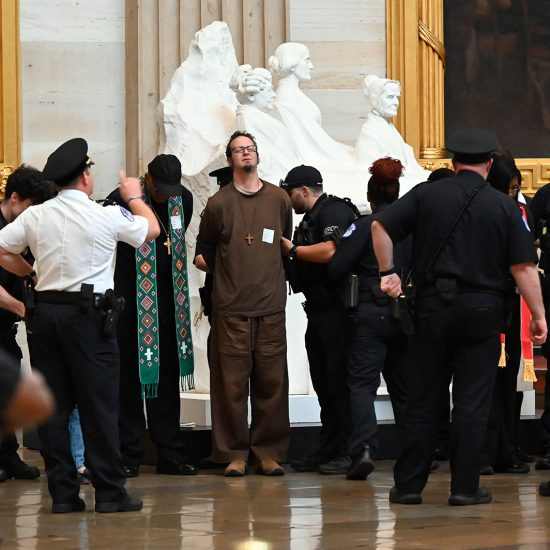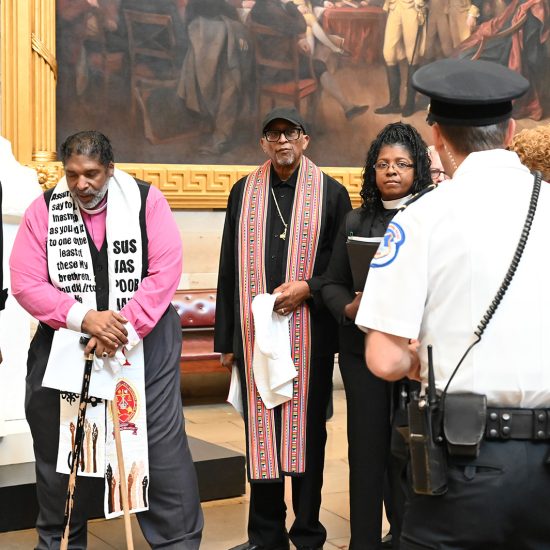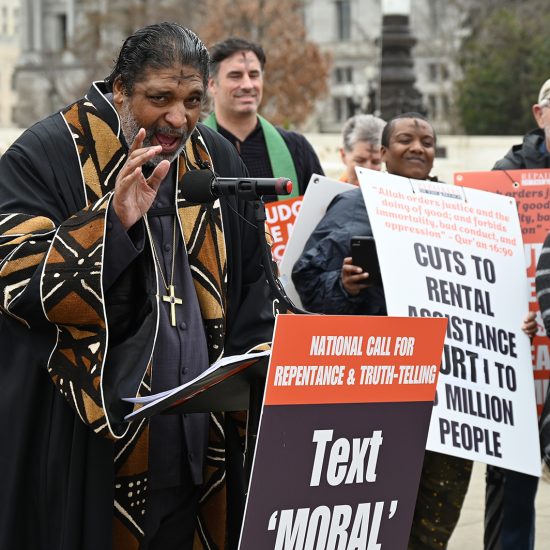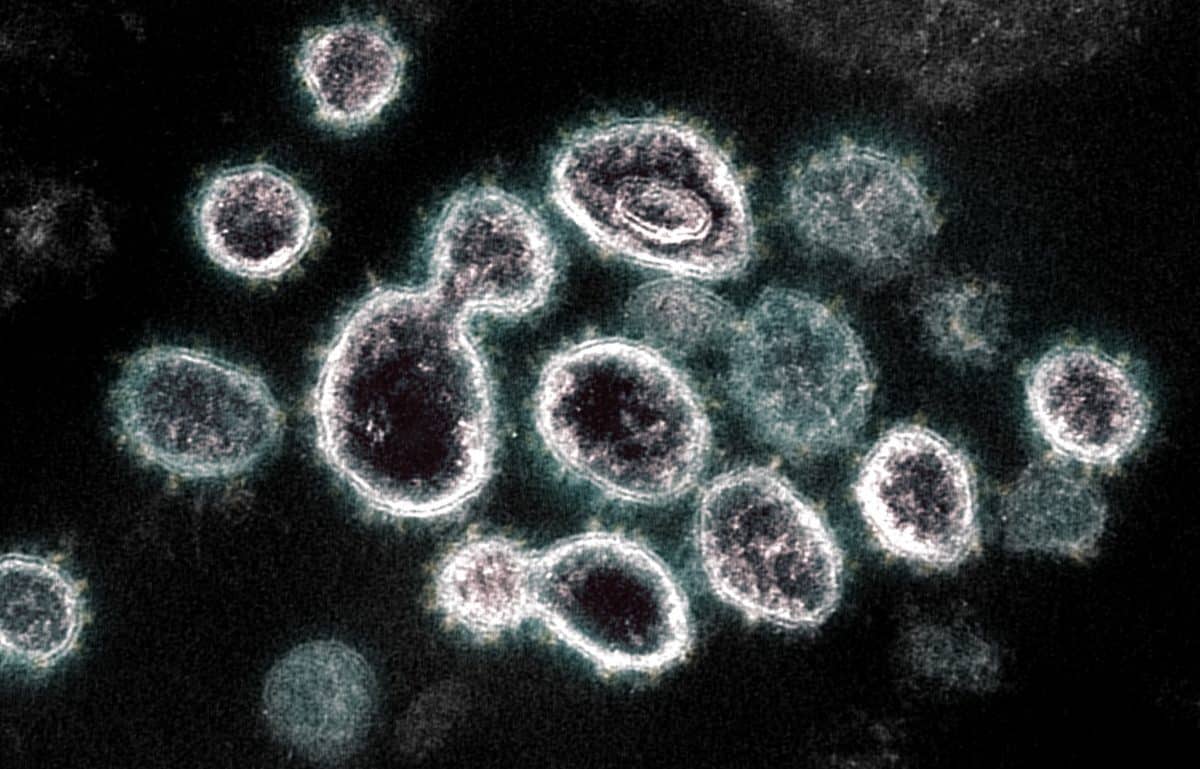
As significant racial disparities emerge in the impact of coronavirus in the United States, some black Baptist leaders say it demonstrates the preexisting racial and economic inequalities in our society. And for those pastors, the disproportionate impact of the outbreak on black communities means the U.S. shouldn’t return to the old normal after the pandemic ends.
As of April 23, more than 2.7 million people globally have been infected with the COVID-19 respiratory disease caused by coronavirus, and more than 190,000 have died. In the U.S., the country with the most infected persons and deaths, more than 876,000 have tested positive and more than 49,000 have died.
Across the country, black Americans are infected and dying at higher rates than other Americans, even though no genetic reasons exist to make blacks more susceptible to the virus. Blacks are dying at a rate 2.9 times higher than Asian Americans, 2.7 times higher than white Americans, and 2.5 times higher than Latino Americans. What this means is nearly three times as many blacks have died as would have if no disparity existed.
While about 14 Americans per 100,000 have died from COVID-19, 23 blacks per 100,000 have (compared to just 9 per 100,000 for whites and Latinos and 8 for Asians). More whites have died in the U.S. from COVID-19, but not at nearly the rate found in the general population.
Data compiled by the investigative journalism magazine Mother Jones demonstrate this disparity as blacks are:
-
- 6 percent of the population in Wisconsin but 39 percent of the COVID-19 deaths.
- 44 percent of the population in Washington, D.C., but 75 percent of the COVID-19 deaths.
- 38 percent of the population in Mississippi but 66 percent of the COVID-19 deaths.
- 14 percent of the population in Illinois but 42 percent of the COVID-19 deaths.
- 6 percent of the population in Kansas but 33 percent of the COVID-19 deaths.
- 14 percent of the population in Michigan but 40 percent of the COVID-19 deaths.
- 11 percent of the population in Missouri but 33 percent of the COVID-19 deaths.
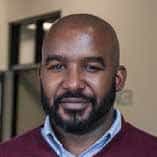
Terrell Carter
Terrell Carter, community team leader for Churchnet and vice president of community life and chief diversity officer at Greenville University in Greenville, Illinois, told Word&Way that both the impact of the outbreak and responses to combating it highlight racial disparities.
“What appear to be disproportionate effects of COVID-19 on African American communities highlights many of the disparities that continue to exist between the haves, the majority culture,” Carter explained, “and the have nots, communities of color. One simple way this has been made evident is through the availability of testing centers, when and where those centers were first set up, and the faces that are highlighted as victims of the virus or heroes helping to fight it.”
The racial disparities of the coronavirus rates sparked a group of black preachers on April 15 to urge U.S. officials to address the racial and economic inequalities that made their communities more vulnerable to the outbreak. Organized by William Barber, a pastor in North Carolina and national activist, the letter included among its original signers several black Baptist pastors: Frederick Douglass Haynes III of Friendship-West Baptist church in Dallas, Texas; Amos Brown of Third Baptist Church in San Francisco, California; Leslie Callahan of St. Paul’s Baptist Church in Philadelphia, Pennsylvania; Terry Melvin of Second Baptist Church in Lackawanna, New York; and Gina Marcia Stewart of Christ Missionary Baptist Church in Memphis, Tennessee.
“As pastors from across the country, we know firsthand and have had to bear witness to the deaths of African Americans from COVID-19 and the heart-wrenching pain experienced by the families and communities left behind. It is for this reason that we stand with our communities which, for far too long, have endured the structural racism and policy violence that is leading to the alarming number of deaths in black communities,” the pastors wrote.
They argued that “the virus itself does not discriminate,” and thus the racial disparities “reflect underlying structural inequalities and lay bare the interlocking systems of racism and marginalization that have their origins in the genocide of Native American peoples and enslavement of African people.” In the letter they called on the national government to provide personal protective equipment for healthcare systems serving black and poor communities, more testing in those communities, and a national recovery bill that “focuses on communities of color and poor and low-wealth communities” to ensure “living wages and paid sick leave for all employees, adequate childcare, rent forgiveness, a full moratorium on utility disruptions, and high-quality, free, universal health care as a human right.”
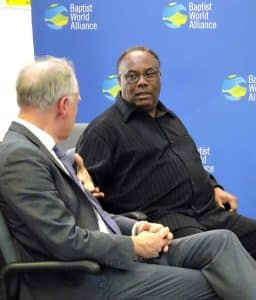
Samuel Tolbert (right) leads a panel conversation about the Angela Project with Paul Baxley of the Cooperative Baptist Fellowship during the 2019 gathering of the North American Baptist Fellowship in Falls Church, Virginia. (Brian Kaylor/Word&Way)
Samuel Tolbert, president of the National Baptist Convention of America and pastor at Greater Saint Mary Missionary Baptist Church in Lake Charles, Louisiana, similarly told Word&Way the racial disparity in coronavirus deaths shows the need for the nation to take seriously the lingering consequences from slavery and systemic racism that are still “attributing to a downward economic and health trends” for “American Descendants of Slavery communities.”
As states start lifting stay-at-home orders and reopening businesses, Tolbert said more must be done to address the racial disparities related to this pandemic. He particularly urged for “increased accessibility to COVID-19 testing, treating, and tracking” for ADOS communities “before any coronavirus “mitigation measures are lifted.”
NBCA leaders have argued over the past few years with initiatives like the Angela Project collaboration with the Cooperative Baptist Fellowship and Progressive National Baptist Convention that the nation hasn’t yet repaired the damage to the ADOS communities from slavery, Jim Crow, redlining, and more. Tolbert sees more evidence of that with coronavirus.
“The country must begin to take studies seriously that have revealed glaring racial inequities,” he said. “Issues of poverty, limited access to health care, and neighborhood deterioration due to covert redlining.”
“Now is the time to take seriously discussions around reparations,” Tolbert added. “Until economic equities are adequately and aggressively addressed through reparations, we will continue to have ADOS more vulnerable during this present and in future pandemics.”


